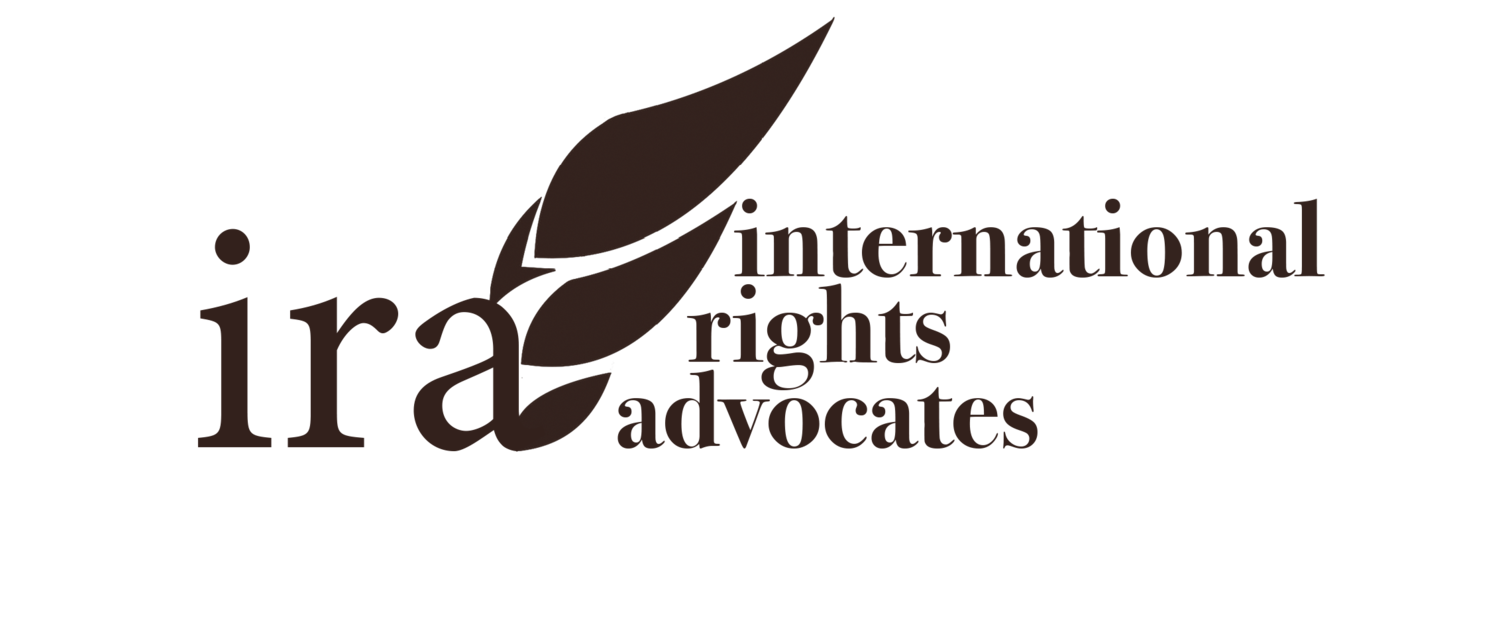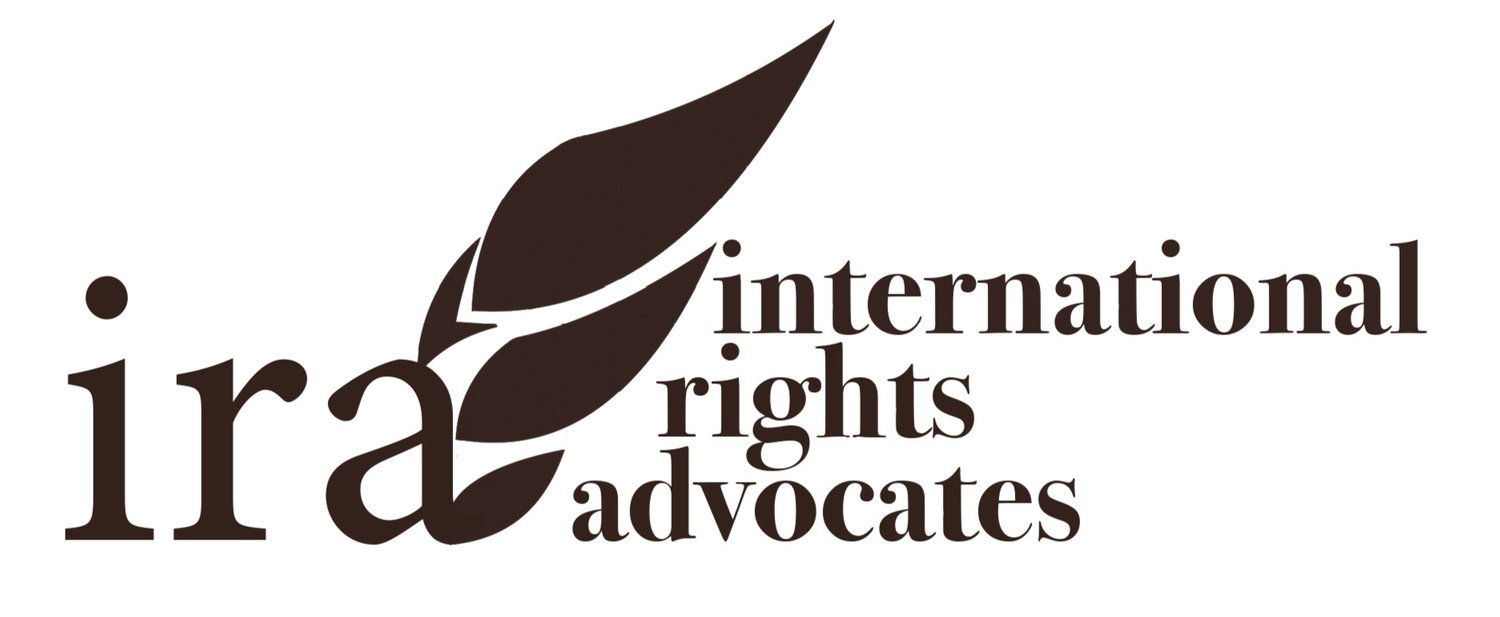Thank you for joining our powerful webinar that redefined activism through the lens of localization and its essential impact on human rights advancements worldwide. For those who missed it or want to revisit the discussion, the full recording is now available on this page.
From Communities to Courtrooms: How Local Approaches Are Rewriting Human Rights
LIVE Q&A HIGHTLIGHTS
Our interactive Q&A session generated thought-provoking discussions. Here are some key questions addressed:
Q: How optimistic do you feel about the capacity of legislation like the CS3D and EUDR to affect change? Is it that it makes it easier to hold companies to account, or do you think we will see companies closing the gap between say and do independently?
A: I think the EUCSDDD and EUDR—especially in tandem with the UK “Environment Bill” Schedule 17—give a great deal of hope. Coming on top of the French ‘devoir de vigilance’ law and the German ‘Lieferkettengesetz’... Plus, if the US passes the FOREST Act! It seems major regulatory reform is afoot, and the different laws may be mutually reinforcing. It should indeed make it easier to hold corporations accountable.
Q: I would appreciate your thoughts on bridging the gap between local organizers and the national dialogue on corporate actions. It often seems that issues originating from specific corners of a country are elevated to the international stage. In contrast, the rest of the country and elites are not effectively engaged in these conversations. How can we ensure that this portion is meaningfully included and that national dialogue is part of advocacy?
A1: Answer 1: I don't understand this question! Sorry.
A2: Imagine a small town nestled in the mountains, where a big mining company has just set up shop. The locals are worried about their water supply and the impact on their traditional way of life. They start organizing, protesting, and suddenly their story catches the eye of international NGOs. Before you know it, there are hashtags trending, and the UN is talking about it.
Meanwhile, in the capital city, life goes on as usual. The politicians, business leaders, and most citizens barely notice what's happening in that far-off corner of the country. They might see a headline or two, but it feels distant, like it's someone else's problem. This is the gap we're talking about. Those local voices are shouting, but they're not quite reaching the national conversation. It's like they've leapfrogged straight to the global stage, leaving a void in between.
Q: USCBP issues WRO for problematic materials which are found to be produced by forced labor. Do you think this mechanism is effective in combating forced labor in global supply chains?
A: Yes, there are far too few WROs. We should be using this tool much more often and more proactively to send a clear message that forced labor will not be tolerated in any part of the supply chain.
Q: Based on the New York Times article mentioned: What are your thoughts on the role of journalism in uncovering abuses in supply chains, and how can it be strengthened?
A: The sugar story by Fuller/NYT was horrifying and exemplified the critical role journalism plays in uncovering these abuses. However, it’s not enough to just expose these issues; we need to follow up with sustained pressure on both companies and governments to act. Strengthening the impact of such journalism requires more collaboration with NGOs and stronger legal frameworks to ensure accountability.
Q: How can we improve the effectiveness and integrity of certifications that are intended to ensure human rights compliance in supply chains?
A: Many certifications are deeply flawed, weak, ineffective, and even misleading. Improving them requires more stringent criteria, better oversight, and independent verification. We also need to ensure that the voices of affected workers and communities are central to these processes.
Q: What strategies have proven most effective in amplifying the voices of the most marginalized communities in human rights advocacy, while also ensuring their safety and protection?
A: Unfortunately, the only strategy is to get media interested, and that is really hit or miss. Most success stories involve a community leader reaching out to media around a specific event.
Q: How does the principle of Free, Prior, and Informed Consent intersect with localization efforts in human rights advocacy, particularly in indigenous communities?
A: FPIC and localization in indigenous rights work go hand in hand. They both focus on empowering communities to make their own decisions. FPIC ensures indigenous people have a say in projects affecting their land. Localization makes human rights concepts relevant to local cultures. Together, they create a powerful approach. Communities use their own languages and traditions to discuss rights. This leads to more effective advocacy and helps prevent conflicts. It's about making human rights meaningful at the local level, while respecting indigenous autonomy. The result is rights work that’s more responsive to community needs and more likely to create lasting change.
Q: How is climate litigation evolving as a tool for human rights advocacy, and what role do local communities play in these legal strategies?
A: It's evolving so rapidly! Mostly, climate litigation has covered fossil fuels/energy issues. Very little covers agriculture and the intersection of climate/biodiversity/labor rights. However, it can evolve. Local communities are key in these strategies.
Q: Hi all, thank you for the presentation. Do you have any hope for the Corporate Sustainability Due Diligence Directive in Europe?
A: I think the EUCSDDD and EUDR—especially in tandem with the UK “Environment Bill” Schedule 17—give a great deal of hope. Coming on top of the French ‘devoir de vigilance’ law, and the German ‘Lieferkettengesetz’... Plus, if the US passes the FOREST Act! It seems major regulatory reform is afoot, and the different laws may be mutually reinforcing.
Q: Considering the huge amount of money that companies throw at lawsuits to cover up their crimes, would it not cost less money to pay their workers a living wage? Is it cheaper for them to pay lawyers?
A: I’m no business expert, but many people say paying a living income price to coffee farmers, for example, would increase the price of a cup by 2-3 cents. It is likely a change customers would pay for, but many companies seem very averse to paying a living income/wage. Unless lawsuits manage to cost them a great deal of money…
Q: Do you find it difficult to work with NGOs who have committed to certifications? We have found that organizations that are committed to them have shunned the work of my organization since we do not trust them. Thanks to Miki and Robin Romano.
A: I am not working directly with NGOs. Often they are too connected with the companies.
Q: How optimistic do you feel about the capacity of legislation like the CS3D and EUDR to affect change? Is it that it makes it easier to hold companies to account, or do you think we will see companies closing the gap between say and do independently?
A: I think the EUCSDDD and EUDR—especially in tandem with the UK “Environment Bill” Schedule 17—give a great deal of hope. Coming on top of the French ‘devoir de vigilance’ law, and the German ‘Lieferkettengesetz’... Plus, if the US passes the FOREST Act! It seems major regulatory reform is afoot, and the different laws may be mutually reinforcing. It will certainly make it easier for activists to try and hold companies accountable.
Q: Do you feel there is growing international and Western policy enough to impact overseas forced labor? Also, the ILO published in 2023 that 52% of forced labor is occurring in middle or high-income countries. Do your experiences support this? Like many, I always believed narratives that these atrocities happened overseas. (Admittedly a very privileged viewpoint)
A: A great deal of US and EU farmworkers experience terrible abuses like child labor, rape, exploitation, union-busting… It’s just something that gets short shrift in major media and relatively little attention from the governments.
Q: I have been wondering why it is so difficult to access financing for litigation necessary to defend communities' rights in this part of Africa. Campaigning has limited effects, and local civil society has often exhausted all avenues to find allies and funding partners to finance litigation. International NGOs often shy away from financing these cases. Where do local CSOs go to find allies and financing?
A: Yes, I share your frustration, as most foundations are afraid of litigation. We are constantly searching for funding.
Q: Could you comment on opportunities for worker or community organizing? How do we put power and accountability in the hands of those that need remedy?
A: This is CRITICAL!!! We must absolutely ensure that farmers and workers are able to defend their own rights. This is vital for the long-term viability of any human rights campaigns!
Q: I am wondering what consumers/people not in the law field can do to help?
A: Ohhh, so many beautiful things!
Sign petitions!
Buy from the heart, buy mindfully.
Share information with friends and family.
Join shareholder resolutions.
Vote, write your elected representatives :)
Q: It is time to establish a pool fund supporting Global South NGOs in paying for lawyers and public litigation. The issues we are facing here are increasing by the day: GMO, Plant Breeders' Rights law, mining operations in national parks and GMOs, etc., an endless list.
A: YES! Brilliant idea - recommend this to FILE!


